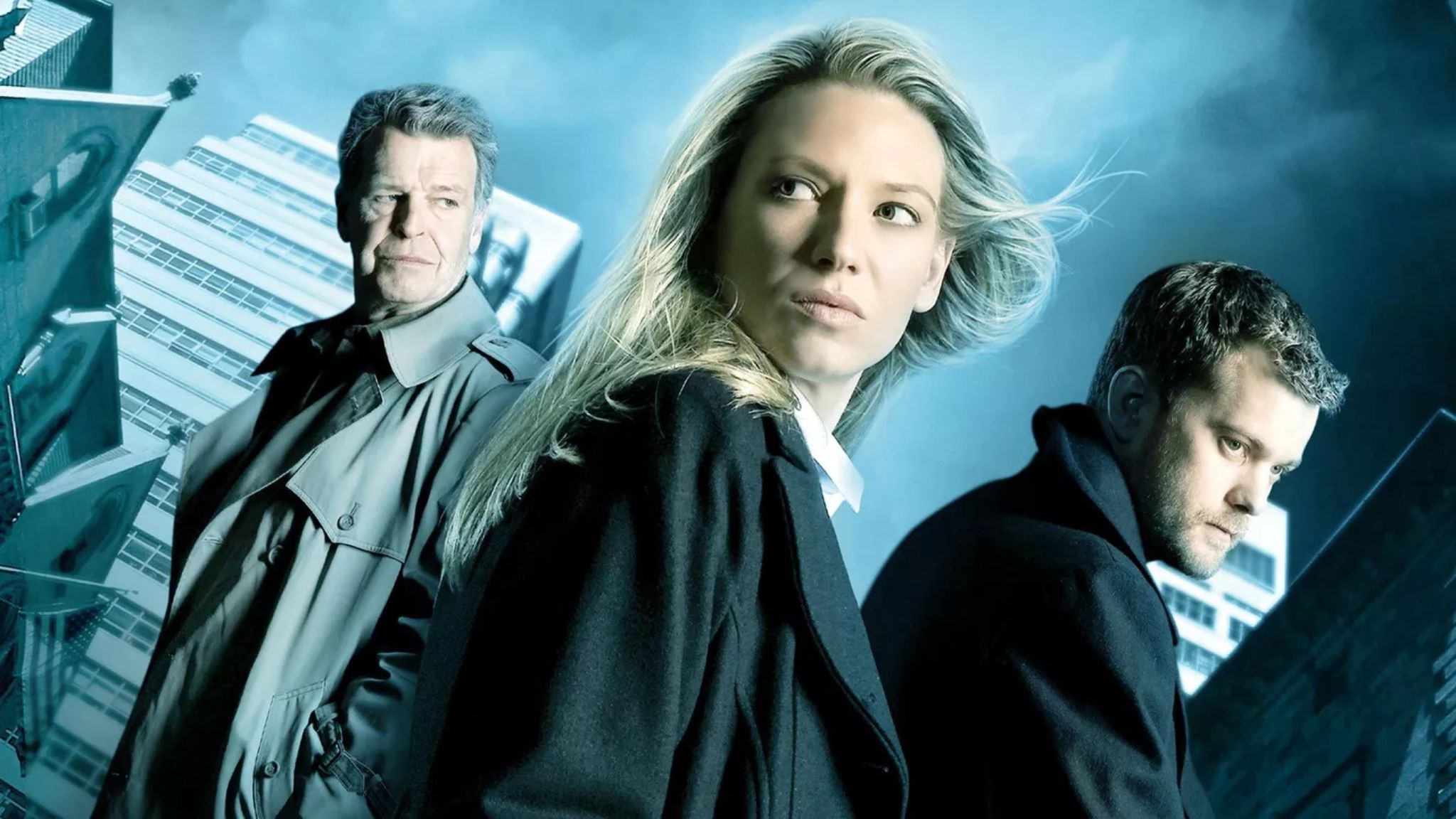
In 2008, J.J. Abrams, Alex Kurtzman, and Roberto Orci introduced the captivating series “Fringe” to television screens. This show, which concluded in 2013, remains a beloved favorite due to its lasting impact on viewers. The story revolved around FBI agent Olivia Dunham (Anna Torv), the eccentric scientist Walter Bishop (John Noble), and his son Peter (Joshua Jackson) as they tackled mysterious occurrences for the Fringe Division. Each episode featured a blend of standalone investigations with a growing, intricate mythology. Initially presented as a procedural, it transformed into an elaborate tale about parallel universes, revealing that the main characters were inexplicably linked to these fringe events. The show’s unique mix of character development, profound philosophical queries, and bizarre science fiction elements offered viewers a thought-provoking journey, delving into the mysteries of unexplained phenomena while maintaining an emphasis on human emotions at its heart.
If you’ve run out of options after rewatching Fringe and are seeking something that combines scientific intrigue, gripping narratives, and enigmatic mythology, there’s a wealth of shows available for binge-watching. Ranging from ghostly investigations to complex corporate trials, these series each spotlight an individual aspect that made Fringe so enthralling. Here are seven essential shows to watch that cater to various aspects of your Fringe curiosity:
1. Stranger Things – A blend of paranormal investigation and small-town drama that’s reminiscent of Fringe’s early seasons.
2. The X-Files – Renowned for its exploration of unexplained phenomena, this classic series shares Fringe’s love for the unknown.
3. Westworld – Delve into a world of artificial intelligence and moral dilemmas as you unravel mind-bending corporate mysteries.
4. Dark Matter – Join a group of space-faring individuals as they grapple with the secrets of their own identities, much like our Fringe characters did.
5. Orphan Black – A gripping tale of clones and conspiracy, this series offers a unique take on the complex narrative style found in Fringe.
6. The OA – Follow a woman’s journey through otherworldly dimensions, as she seeks to uncover the truth about her own existence.
7. Manifest – Experience airline passengers who find themselves dealing with mysterious events after their plane lands, reminiscent of Fringe’s intriguing storylines.
The X-Files
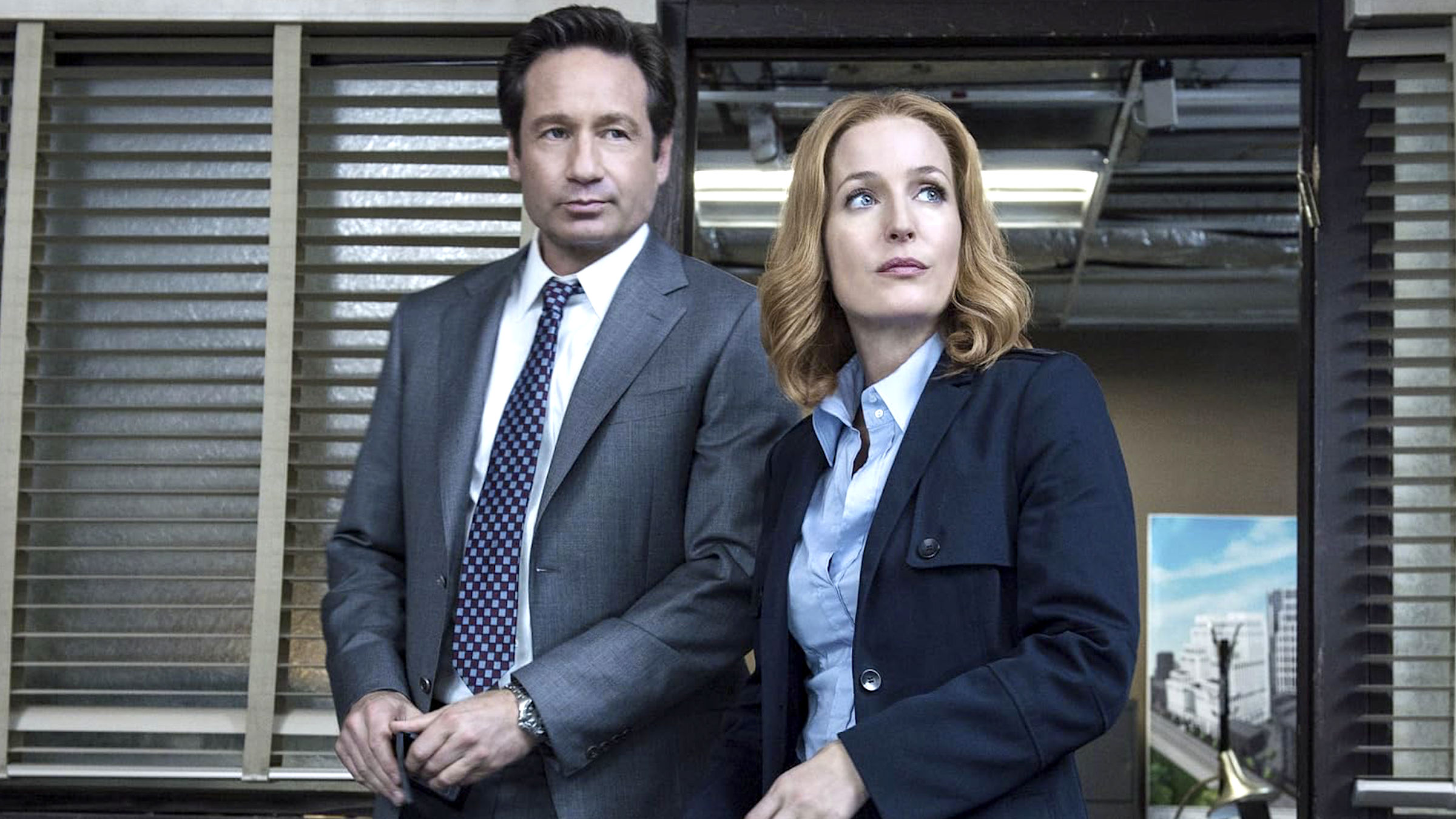
Chris Carter’s innovative television show, titled “The X-Files“, focuses on FBI agents Fox Mulder (David Duchovny) and Dana Scully (Gillian Anderson), who delve into mysterious occurrences and government secrets. Mulder, with his unwavering faith in extraterrestrial life and supernatural events, clashes with Scully’s scientific disbelief, creating an engaging dynamic. The show masterfully juggles between self-contained episodes featuring strange creatures (“monsters”) and complex storylines revolving around alien invasions and covert government agents, thereby offering a blend of various narrative styles while preserving the ongoing conflict between logical explanations and inexplicable events.
As a dedicated movie enthusiast, I’d like to share my thoughts on the captivating TV series, “The X-Files.” The heart of this show lies in the profound connection between Mulder (Duchovny) and Scully (Anderson), a relationship that forms the emotional bedrock. This bond, much like how the Bishop family drama anchors the supernatural oddities in ‘Fringe,’ gives even the most bizarre theories an uncanny relatability for viewers.
Just as ‘Fringe’ masterfully combines atmospheric suspense with a layered mythology that rewards close observation, ‘The X-Files’ excels in creating tension while weaving an intricate narrative tapestry filled with government conspiracies. If you were captivated by the procedural aspects of ‘Fringe’ and its exploration into covert operations, ‘The X-Files’ offers a whopping nine original seasons (plus a revival), brimming with paranormal investigations and cover-ups.
LOST
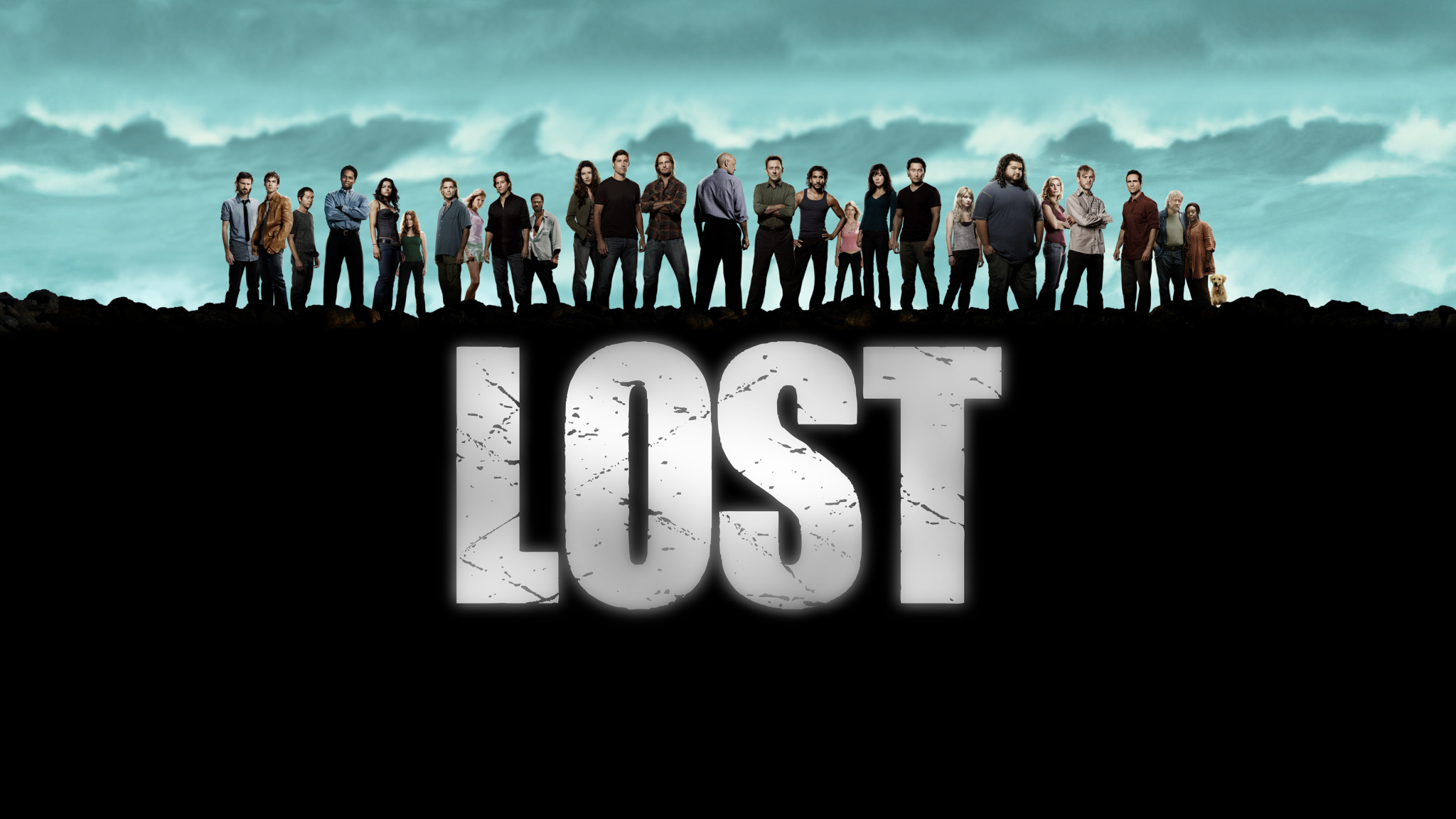
The television series LOST left a multicultural band of airplane crash victims stranded on an enigmatic island inhabited by polar bears, mysterious smoke entities, and a covert research group called the DHARMA Initiative. Under the leadership of Jack Shephard (Matthew Fox), Kate Austen (Evangeline Lilly), and John Locke (Terry O’Quinn), the castaways faced both immediate perils and the island’s numerous puzzles. Conceived by Jeffrey Lieber, J.J. Abrams, and Damon Lindelof, LOST redefined television storytelling with its unconventional narrative style, employing flashbacks, flash-forwards, and later flash-sideways to flesh out its extensive cast. Moreover, the show’s complex narrative explores themes of destiny versus choice, redemption, and meaning, frequently through the perspective of faith vs science conflicts between characters.
As LOST unfolds, it becomes clear that the island is situated where electromagnetic irregularities, time distortions, and reality-altering phenomena occur – similar to some of Walter Bishop’s more extraordinary tests on Fringe. The show stands out by seamlessly integrating character growth with supernatural enigmas, fostering an emotional bond with viewers that helps them navigate even the most peculiar storylines. For fans who enjoyed the mythology aspects of Fringe, LOST delivers six seasons filled with intricate narrative puzzles to keep your mind busy.
The 100
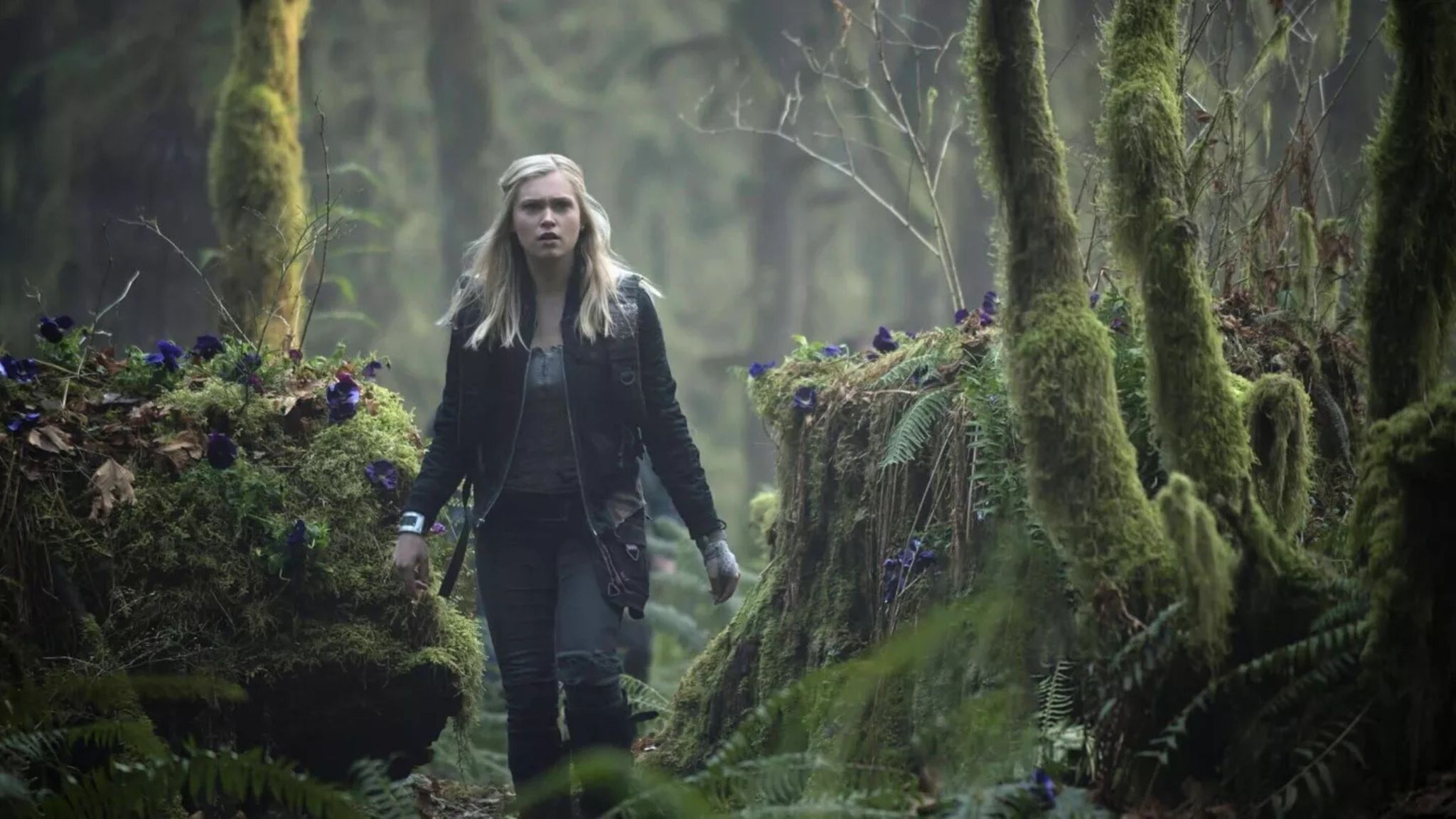
The 100,” derived from Kass Morgan’s novels, commences with a basic idea: a hundred teenage offenders are dispatched from a deteriorating space station to check if Earth is habitable again after a nuclear catastrophe made it uninhabitable. The group is led by Clarke Griffin (Eliza Taylor), who is practical, and Bellamy Blake (Bob Morley), who is rebellious. They must traverse a transformed world filled with perils, both man-made and environmental. Showrunner Jason Rothenberg constructs a plotline that swiftly transcends mere survival, delving into how various factions adapted to post-apocalyptic circumstances and established contrasting ideologies. As the story unfolds, it ventures into more intricate realms of science and ethics, incorporating genetic engineering, artificial intelligence, and mind-transfer technology.
100 explores challenging moral dilemmas concerning actions taken for survival as characters progressively make ethically questionable decisions. It sets itself apart by pursuing scientific ideas to their extreme, often unsettling outcomes, demonstrating the potential disaster that can arise from technological advancement without ethical boundaries. Over seven seasons, it keeps tension high and consistently reinvents itself, exploring human interaction with technology in a way that would captivate Walter Bishop’s interest.
Orphan Black
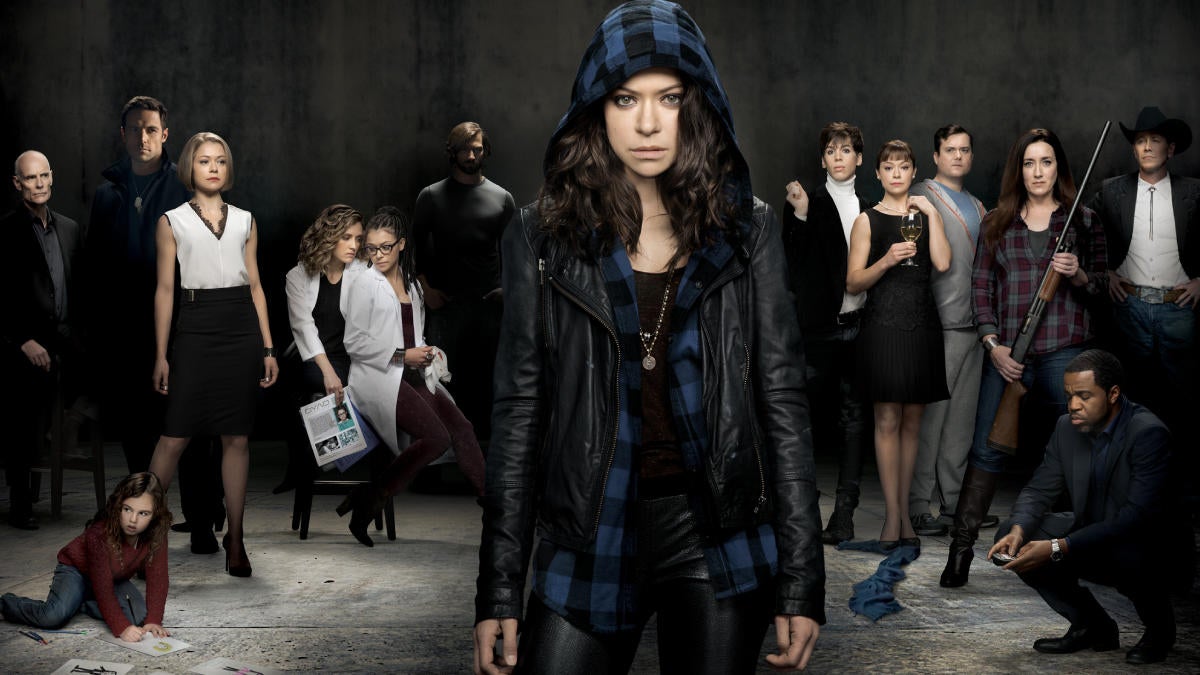
In the award-winning series “Orphan Black“, the captivating plot unfolds as street-smart con artist Sarah Manning (Tatiana Maslany) encounters a woman who resembles her, only to find out that she’s one of several clones produced through an illicit human cloning project. As Sarah crosses paths with her “clone sisters,” such as scientist Cosima, suburban housewife Alison, and unstable assassin Helena (all skillfully portrayed by Maslany in a critically acclaimed performance), questions about identity, self-ownership, and genetic ethics arise. The series delves into the intricate web of organizations like the Dyad Institute, religious fanatics known as the Proletheans, and military uses of cloning technology. Throughout its run, “Orphan Black” masterfully examines the emotional fallout from learning that one’s life was created through scientific experimentation.
Orphan Black skillfully juggles intricate storytelling and character growth, sustaining the pace throughout five seasons as it delves into the repercussions of unchecked scientific progress. Viewers captivated by the scientific ingenuity displayed in Fringe will find themselves drawn to this Canadian production, which offers a uniquely feminist perspective on advanced biotechnology.
Severance

Apple TV+’s psychological thriller Severance imagines a world where employees at mysterious corporation Lumon Industries undergo a “severance” procedure that completely separates their work memories from their personal lives. Office worker Mark Scout (Adam Scott) leads a team that includes Dylan (Zach Cherry), Irving (John Turturro), and newcomer Helly (Britt Lower), with none of them knowing who they are outside of work while at Lumon, and having no memory of what they do at work when they’re home. Creator Dan Erickson and director Ben Stiller craft a meticulously controlled visual language that emphasizes the psychological horror of this corporate experimental procedure. Meanwhile, Patricia Arquette delivers an unsettling performance as Mark’s boss Harmony Cobel, who monitors the severed employees with clinical detachment.
As employees at Lumon (referred to as “innies”) start probing the peculiar surroundings and limited actions within their workplace, they stumble upon pieces of a broader scheme revealing Lumon’s true objectives. The series builds suspense through its clinical setting, odd corporate customs, and profound philosophical queries about awareness and selfhood. In Severance, the ethical implications of technological manipulation in human psychology and the hazardous corporate uses of mind-changing technology are scrutinized. For fans who enjoyed the investigation into scientific ethics and corporate machinations on Fringe, Severance offers a fresh idea skillfully executed.
Eureka

In a nutshell, Syfy’s humorous show Eureka revolves around a hidden town inhabited by the world’s brightest scientists, where their revolutionary inventions frequently result in disastrous mishaps that necessitate the help of Sheriff Jack Carter (Colin Ferguson), an ordinary man with extraordinary problem-solving abilities. Developed by Andrew Cosby and Jaime Paglia, Eureka chronicles Carter’s journey as he manages scientific calamities caused by the town’s brilliant yet careless inhabitants, such as physicist Nathan Stark (Ed Quinn), engineer Henry Deacon (Joe Morton), and Department of Defense liaison Allison Blake (Salli Richardson-Whitfield).
The brilliance of Eureka is found in its unique fusion of creative scientific thinking with small-town humor, offering a glimpse into mishaps involving advanced technology while building intricate character dynamics over five seasons. From sentient homes to unintentional time warps, the series delights us with a rich tapestry of scientific ideas, infused with laughter. Eureka maintains a delicate balance between individual episodes filled with scientific crises and a broader narrative exploring the town’s origins and government ties, echoing the structure of Fringe. Yet, unlike its darker sci-fi counterparts, Eureka offers a positive take on scientific progression, focusing more on problem-solving and innovation rather than impending doom. Fans of Walter Bishop’s childlike fascination with scientific exploration will find much to appreciate in the science fiction comedy blend that is Eureka.
Evil
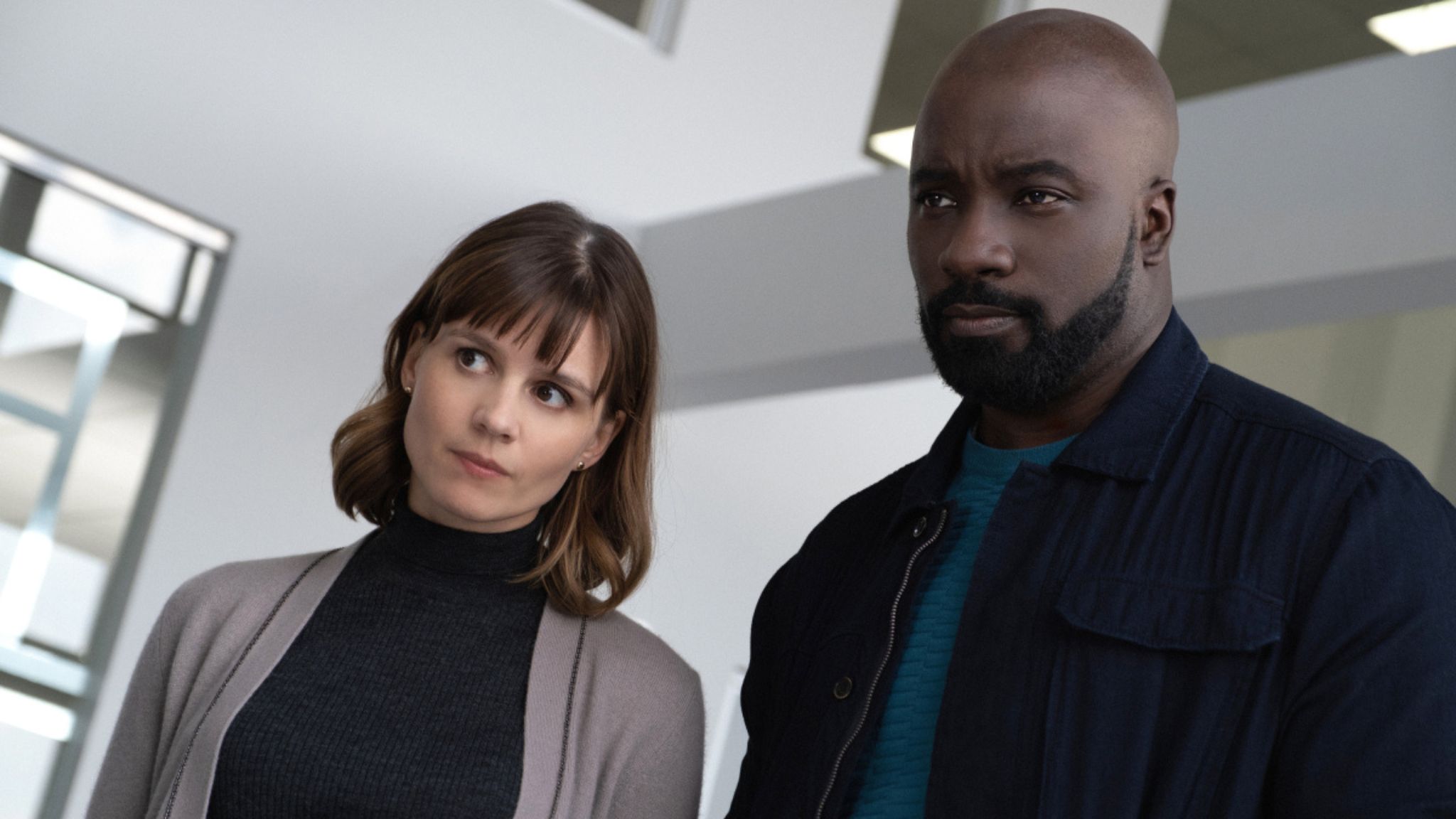
The series titled “Evil” focuses on Dr. Kristen Bouchard, a forensic psychologist, David Acosta, who is training to be a priest, and tech expert Ben Shakir as they work together for the Catholic Church, investigating alleged supernatural occurrences. Each member of this central trio brings their unique perspective: Kristen looks for psychological causes, David examines spiritual aspects, while Ben searches for technological deceit. The creators, Robert and Michelle King, keep the viewers guessing by often leaving episodes open-ended, not providing a clear answer as to whether an event was truly supernatural or had a rational explanation behind it.
The show, titled “Evil“, blends individual investigations with an evolving narrative about organized wickedness, delving into how technology, psychology, and spirituality intertwine in the contemporary era. What sets this series apart is its open-minded approach to both scientific reasoning and religious faith, refusing to disregard either entirely. Lastly, “Evil” skillfully merges genuine frightening moments with profound philosophical discourse, crafting disquieting situations that challenge the essence of reality and human cognition. Although it leans more towards horror rather than science fiction, “Evil ” emulates “Fringe“‘s weekly case structure leading to grander truths, employing scientific inquiry to unravel enigmatic occurrences.
Read More
- PI PREDICTION. PI cryptocurrency
- Gold Rate Forecast
- Rick and Morty Season 8: Release Date SHOCK!
- Discover Ryan Gosling & Emma Stone’s Hidden Movie Trilogy You Never Knew About!
- Linkin Park Albums in Order: Full Tracklists and Secrets Revealed
- Masters Toronto 2025: Everything You Need to Know
- We Loved Both of These Classic Sci-Fi Films (But They’re Pretty Much the Same Movie)
- Mission: Impossible 8 Reveals Shocking Truth But Leaves Fans with Unanswered Questions!
- SteelSeries reveals new Arctis Nova 3 Wireless headset series for Xbox, PlayStation, Nintendo Switch, and PC
- Discover the New Psion Subclasses in D&D’s Latest Unearthed Arcana!
2025-03-12 19:43